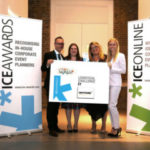For the U.S. meetings and travel industry specifically, no hurricane in the past seven years has resulted in more canceled flights than Sandy, according to Flightstats.com, which publishes global flight information for travelers and businesses.
Bob Mann, an airline industry analyst with R.W. Mann Inc., estimated in the Huffington Post that carriers would lose somewhere “between $400 [million] and $500 million total.” And the Global Business Travel Association estimated “an average business-travel spending loss as high as $58 million per day” during and after the storm.
And while thousands of meetings and events were canceled or postponed because of Sandy, the industry prevailed. Even hardest-hit New York and New Jersey bounced back quickly.
Bouncing Back
Based on Flightstats.com’s statistics, 20,254 flights originating and arriving in North America were canceled between Oct. 27 and Nov. 1 — nearly 10,000 of them in the New York area alone. But in an industry where the show must go on, that’s what happened. NYC & Company and BizBash cohosted a meeting of several dozen event professionals in Manhattan a week after Sandy that, according to BizBash, “took the temperature of the industry as it begins to formulate a response to the economic impact of the storm.”
The Javits Center in New York City, which sits on the Hudson River, took in a lot of water during Sandy, affecting the loading docks and the first level of the exhibit floor. But “within 24 hours,” said Leslie Buxton, Javits’ marketing and communications coordinator, “the center was up and operational again.”
Even still, due to severe damage, power outages, and displaced residents throughout the city, Javits was forced to postpone three events and had two others canceled. “We’re working out what [organizers] want to do,” Buxton said. “Some people wanted to reschedule, some want to cancel, but all our shows [scheduled for the week after Sandy] are right on time and on schedule.”
Command Center
Despite the pounding that New Jersey’s beach towns received, the Atlantic City Convention Center not only didn’t see any damage, it served as home base for safety officials. “We were the command center for all the emergency-management officials, because we are up on higher ground,” said Jeffrey Vasser, president of the Atlantic City Convention & Visitors Authority. “When the city was preparing for the storm, we were the location for all of the roll calls. All of the first responders — police, fire — were parking their cars [at the convention center], and we were keeping all of their other vehicles as well.”
But while the convention center was a place of refuge, the city surrounding it was flooded. New Jersey Gov. Chris Christie banned anyone from entering Atlantic City until Friday, Nov. 2. As a result, the convention center ended up canceling or postponing five events. “If we couldn’t get into the city, we couldn’t accommodate [attendees] in the casinos,” Vasser said, “and our hotels were closed because there were severe power outages across the city. We were okay [at the convention center] through our generators and by sheer luck.”
During an interview with Convene on Nov. 2, Vasser sounded confident that no more major events would be affected, including a Carrie Underwood concert at historic Boardwalk Hall scheduled for Nov. 9. “Now that the governor has lifted the restriction,” Vasser said, “it will probably take another day or two for the city to get up to speed, but by next week the whole city should be fine.”
First Responders
During the storm, meeting and event professionals did what they tend to do best: responded to a change in plans. BizBash reported that Starr Tent — an event-tent rental company in the Northeast — set up temporary structures in Manhattan’s Meatpacking District, giving organizers whose scheduled venues were closed the opportunity to still host their events.
And PlannerTech, an event-technology conference in New York, had a donation bin for the Red Cross at its Nov. 7 meeting. “For those who may still be without power,” PlannerTech posted on its website, “we will have warmth, food, drinks, and plenty of charging stations.”



